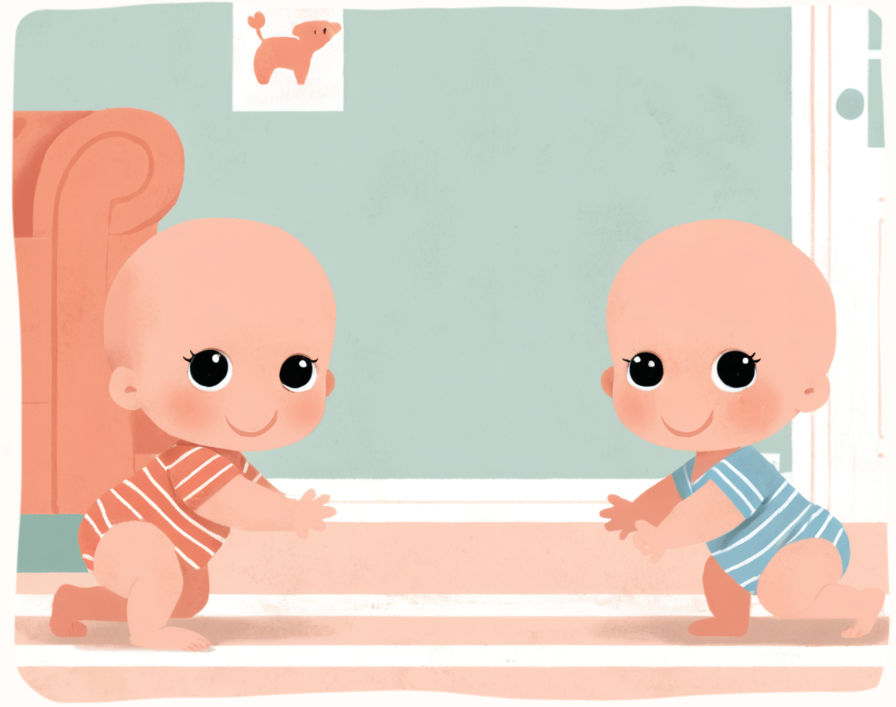Every baby develops differently, and that’s a good thing. Learn why brain plasticity makes variation normal, how to stop comparing, and when to seek reassurance.

We’ve all been there. You see another baby walking at 10 months, or saying words at 11 months, and suddenly you wonder: Are we behind? Did I do something wrong?
Here’s the truth: every baby is on their own timeline. And science shows that’s not only normal: it’s a good thing! These differences are part of what makes your baby unique and resilient.
Your baby’s brain is constantly building and reshaping connections, a process called plasticity. This means:
- Development is flexible and adapts to each baby’s experiences.
- There isn’t one “right” timeline; variation is expected and healthy.
- Skills often develop in bursts: your baby might focus on motor skills first, then language later (or the opposite).
Research published in PNAS shows that individual differences in development often come from natural variations in how babies “sample” their environment, not from something being “wrong”.
- Unique learning styles: Some babies are observers, others are doers. Both approaches work.
- Cultural and family influence: Daily routines, languages spoken, and environment all shape milestones.
- Strength in diversity: Variation helps babies adapt. It’s evolution’s way of preparing them for different challenges.
- Focus on steady progress, not exact dates. Is your baby learning new things (even small ones!) over time? That’s what matters.
- Celebrate their strengths. Maybe they’re not walking yet, but they’re amazing at babbling or stacking toys!
- Remember: milestones are ranges, not deadlines. Walking between 9-18 months and first words between 10-15 months are both normal.
Most variation is normal, but reach out if your baby isn’t showing any progress over several months, loses skills they had before, or doesn’t respond to sounds, voices, or eye contact. Getting reassurance early is always okay.
At Isiboo™, we believe in celebrating your baby’s journey. Our quizzes and tips help you understand what’s happening behind the scenes, so you can support them with love and confidence, without feeling pressured by charts or other people’s timelines.
- Marc H. Bornstein, Diane L. Putnick, Paola Rigo, Gianluca Esposito, James E. Swain, Joan T. D. Suwalsky, Xueyun Su, Xiaoxia Du, Kaihua Zhang, Linda R. Cote, Nicola De Pisapia, and Paola Venuti. Psychological and Cognitive Sciences. Neurobiology of culturally common maternal responses to infant cry. October 23, 2017; 114 (45) E9465-E9473. url: https://doi.org/10.1073/pnas.1712022114
- CDC’s Developmental Milestones. https://www.cdc.gov/ncbddd/actearly/milestones/

